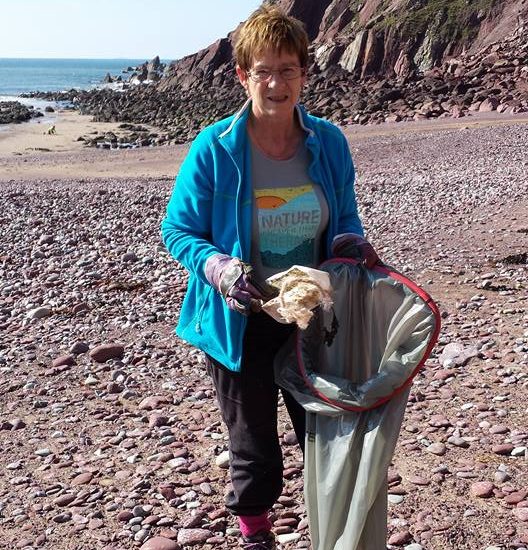- 21/09/2015
- Posted by: Joyce Watson MS
- Category: Feature

On Saturday (19 September) Joyce Watson AM joined volunteers and environmental campaigners at West Dale beach for the annual Great British Beach Clean weekend.
The Marine Conservation Society (MCS) has been running the national campaign for 20 years. Last year more than 460 volunteers helped clean 36 Welsh beaches.
The Labour Mid and West AM helped pick up rubbish and survey the amount, type and origin of litter on the dramatic Pembrokeshire beach, where Henry Tudor landed his army in 1485 on the way to the battle of Bosworth. The results will feed into a national and global survey.
Speaking after the clean-up, Mrs Watson said:
“Pembrokeshire’s beaches are among the finest in the world, and we want to keep them that way.
“Rubbish is not only an eyesore, it can have a devastating impact on wildlife. Around 80% of marine litter makes its way to the sea from inland, so beach litter is everyone’s responsibility.
“On West Dale we mainly found assorted plastic, fishing paraphernalia and polystyrene. The good news is that I didn’t see any plastic carrier bags – I should think that’s somewhat down to the 5p charge that was introduced five years ago.”
Data collected from hundreds of British beaches over the past two decades shows a steady rise in beach litter, most commonly plastic.
Gill Bell, Marine Conservation Society programme manager for Wales, added:
“Litter density found in our surveys in Wales has been increasing annually since 2011 and last year showed a record high. As well as our work targeting actions to tackle key sources of litter we would welcome further initiatives to reduce litter at source.”
In March, the charity reported that record levels of rubbish are being washed up and left on Welsh beaches – more than two-and-a-half times that found on UK beaches as a whole. Wales’ location, jutting out into the Irish Sea to its north and west and with the Bristol Channel to the south, together with prevailing westerly winds and sea currents, makes it particularly vulnerable to coastal litter.

